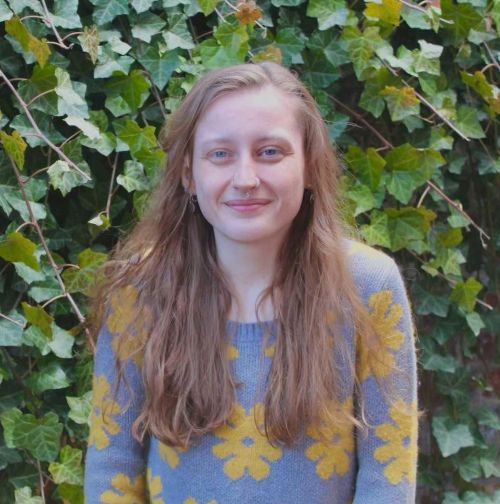In OCD counseling, Thriveworks Ashland therapists use cognitive behavioral techniques, including exposure and response prevention, to assist you in addressing and managing your obsessive thoughts and compulsive behaviors. An OCD therapist will collaborate with you to identify and modify irrational thought patterns while gradually and gently exposing you to anxiety-triggering situations, helping to disrupt the cycle of obsessive-compulsive rituals and promote healthier coping strategies.
The number of sessions for OCD counseling is variable, contingent upon the individual’s unique needs, the severity of their condition, and their progress during treatment. Typically, Cognitive behavioral therapy (CBT), commonly used for OCD, comprises around 12 to 16 weekly sessions, but the exact session count can be customized based on the individual’s response to treatment and therapeutic objectives. Some opt for a more extended duration to comprehensively manage symptoms and address complex issues.
Obsessive-Compulsive Disorder Therapy – Therapists and Counselors in Hanover, VA
Obsessive-Compulsive Disorder (OCD) is a chronic and long-lasting disorder where an individual has an uncontrollable desire to repeat behaviors or thought patterns over and over again. OCD is a common mental health disorder. There is no cure for OCD but individuals can achieve a normal life if they receive a proper diagnosis and treatment plan. According to research, OCD is more common in women than in men and stress can increase the severity of the symptoms.
Signs and Symptoms
Individuals with OCD may have symptoms of obsessions, compulsions, or both. These symptoms can impact all facets of an individual’s life. Common obsession or compulsive symptoms include:
- Fear of germs
- Unwanted forbidden thoughts
- Aggressive thoughts towards others or self
- Having things in a perfect order
- Excessive cleaning and/or handwashing
- Ordering and arranging things in a preferred way repeatedly
- Repeatedly checking on things
- Compulsive counting
- Can’t control his or her excessive thoughts or behaviors
- Spends at least 1 hour a day with excessive thoughts
- Behaviors do not provide peace or relief
Symptoms may vary, and they increase or subside over time. Many individuals try to avoid triggers to maintain their OCD and prevent episodes from getting worse or happening at all. Some engage in alcohol or drug use to calm their obsessive thoughts or actions. OCD symptoms in children are usually discovered by parents or teachers because they are able to observe their behavior on a daily basis.
Risk Factors
1) Genetics
Studies have determined that individuals with a family history of OCD are more likely to develop the disorder. It is even higher if the family member developed the disorder as a teen. Researchers continue to study genetic links to help improve early diagnosis.
2) Brain Function
Researchers believe that OCD symptoms are a result of brain abnormalities but have yet to determine in certain areas of the brain, but that connection is not clear. As more information is discovered, treatment for OCD will improve.
3) Environment
Individuals who have experienced trauma or abuse in childhood are at an increased risk for developing OCD. A doctor may do a physical exam and bloodwork to make sure that your symptoms aren’t related to another illness. Many doctors also interview their patients to determine if their OCD symptoms are in fact disrupting their life. From there a referral to a mental health professional will be made to begin proper treatment and therapy.
Treatments and Therapies
OCD is typically treated with medication, psychotherapy or a combination of the two. Sometimes people with OCD also have other mental health issues, such as anxiety, depression, and body dysmorphic disorder.
- Cognitive behavioral therapy (CBT): This approach helps individuals identify and challenge irrational thoughts and beliefs related to OCD, as well as develop healthier coping mechanisms and behaviors.
- Exposure and response prevention (ERP): ERP involves gradually exposing individuals to situations that trigger their OCD symptoms while refraining from engaging in compulsive behaviors. Over time, this desensitizes individuals to their fears and reduces the urge to perform compulsions.
- Acceptance and commitment therapy (ACT): ACT focuses on helping individuals accept their intrusive thoughts and feelings without trying to control them, while also encouraging them to commit to actions aligned with their values and goals.
- Mindfulness-based therapy: Mindfulness techniques, such as meditation and deep breathing exercises, can help individuals become more aware of their thoughts and feelings without judgment, allowing them to respond to their OCD symptoms more effectively.
- Medication: In some cases, psychiatrists may prescribe antidepressants or anti-anxiety medications to help manage OCD symptoms, particularly when combined with therapy.
- Family therapy: Family therapy can help educate loved ones about OCD, improve communication within the family, and provide support for both the individual with OCD and their family members.
- Support groups: Participating in support groups with others who have OCD can offer validation, encouragement, and practical advice for managing symptoms.
- Psychotherapy
Call Thriveworks Ashland—because there’s no reason to delay getting a professional’s help. With a provider’s support, you can reclaim your life from the mental health challenges standing in your way.




















